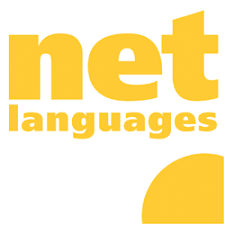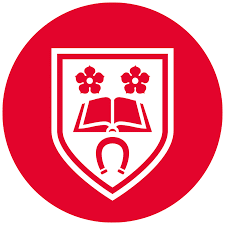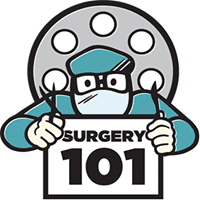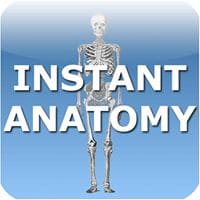
How to Learn Medical English for Healthcare Industry Work: Top Courses and Resources
If you’re an English learner working in or studying the medical field, it can be easy to get overwhelmed by all the long, hard-to-pronounce terms.
On top of that, you’ll often need to switch back and forth between medical English with your colleagues and standard English with patients.
Starting to feel dizzy?
Don’t worry—we’ve got the perfect treatment. Here are some top-quality resources for learning medical English, including online and in-person courses as well as podcasts.
Contents
- 1. Online Medical English Lessons
- 2. Medical English Podcasts
- 3. In-Person Medical English Courses
- Medical English Vocabulary to Get You Started
- And One More Thing...
Download: This blog post is available as a convenient and portable PDF that you can take anywhere. Click here to get a copy. (Download)
1. Online Medical English Lessons
With online lessons, you can develop your medical and professional English skills at a time and pace that works for you. That way, you can remember all of those medical words and phrases that aren’t usually talked about in casual conversations.
Here are some online courses to help you as you’re learning English for medicine:
Medical English
MedicalEnglish.com is a paid English for medicine course that helps doctors, nurses and medical school students learn how to communicate in the medical industry. The program, which is intended for intermediate and advanced students, costs at least $9 a month and covers 20 topics, such as anatomy, mental health and dentistry.
The course is comprehensive and includes a number of activities that test reading, writing, listening, speaking and vocabulary knowledge. Students can study and complete assignments on their computer, smartphone and mobile device.
And everyone who passes the course is given a certificate saying they’ve completed the MedicalEnglish.com program. That’s a great boost to your CV if you’re looking for jobs in the medical field.
FluentU
Learning medical English requires both a strong grasp of general English and more specific health-related vocabulary. FluentU is a language learning program that boosts your English skills by immersing you in videos while allowing you to focus on a topic, like medicine and wellness.
It teaches you in context through clips from native English media. There are more than a thousand clips in its library, including videos with themes like choosing a doctor or dealing with diseases.
Each clip has interactive subtitles and transcripts, and you can save new words as flashcards for later studying. The program then turns these flashcards into personalized quizzes with not just written exercises but also audio and video snippets and speaking practice.
English Health Train
English Health Train is a free online medical course for ESL students studying advanced English for medicine. The site is designed specifically for medical students, doctors and nurses who’re studying or working in an English-speaking country.
English Health Train is one of the most comprehensive free courses on the internet. In total, its curriculum offers around 240 to 320 hours of coursework, depending on how quickly you learn. It’s designed just like a classroom curriculum and comes with five modules that cover different subjects of medical English, including:
Inside every module is a set number of units. Each unit contains a listening, pronunciation, reading and vocabulary exercise, as well as a practical exercise called “project work” that requires you to use your medical English skills in a real-world setting.
If you’d like to learn more about English Health Train, you can take a look at their activities for the first module here.
Net Languages’ Medical English Course

Net Languages offers several practical English courses, including a specialized Medical English course for health professionals. This covers all three levels: beginner (A1 and A2), intermediate (B1) and advanced (B2 to C2), so you can start taking their courses no matter what your level!
Each course has at least 18 hours worth of material, with a mix of videos, grammar and vocabulary explanations and interactive exercises. The focus is on practical, real-life situations, so you might be asked to fill out patient records, listen to clips of patients talking about themselves and read scientific articles.
On top of the basic course material, you can go for the premium version to consult with English tutors and do conversational classes.
2. Medical English Podcasts
Medical podcasts are perfect learning tools for people who don’t have the time to sit down and read textbooks or work through online courses. You can listen to them anywhere, like on the bus, in the kitchen while you’re cooking dinner or around the house while you’re cleaning. And since they cover up-to-date information, you get to learn about what’s new in the medical industry while improving your vocabulary and practicing your listening skills.
Reading and Listening for Medical Workers
This podcast is part of a professional ESL program called “Interesting Things for ESL Students.” Here, you can find podcasts and news articles covering different topics within medicine, such as:
While the podcast episodes don’t focus on advanced medical English, like anatomy or scientific terminology, it’s perfect for ESL students trying to learn general medical information.
Also, each episode comes with a script that you can read as you follow along.
Health Check by the BBC
Health Check is a weekly podcast on disease and medicine around the world. The podcast is best suited for upper-intermediate and advanced students who’re already able to follow news broadcasts relatively easily. It’s great for anyone trying to stay current with events in medicine.
The podcast episodes cover a number of different topics, such as disease outbreaks in developing countries, the dangers of high blood pressure and how to improve your immune system. But remember, episodes only last for 30 days before the BBC removes them. So if you want to listen to a certain episode, don’t wait too long!
Surgery 101
Surgery 101 is a podcast designed to help explain the different types of surgery and how they’re performed. The average podcast episode lasts between 10 and 15 minutes. They’re presented in a way that medical students and non-medical students can both benefit from.
The podcast episodes are separated into categories based on the type of surgical method, like cardiac surgery (for the heart), neurosurgery (for the brain) and pediatric surgery (for children). Fortunately, each category has a picture that makes it easy to understand if you don’t happen to know the word in English.
In addition to their website, Surgery 101 has a downloadable podcast on iTunes and a YouTube channel with various videos. Don’t worry—they’re not videos of real surgery procedures!
Instant Anatomy
Instant Anatomy is a podcast available on iTunes that goes into detail about the different parts of the body. Here, you can learn English names for all the bones, organs, muscles and other parts of the body, as well as what each body part does.
The podcast is great for ESL students learning more about the human body, but it’s designed with medical students in mind—not ESL students specifically. For this reason, it might be a little difficult for anyone who isn’t already an advanced English speaker.
Along with downloading the podcast on iTunes, you can visit the Instant Anatomy website and download the notes for each lesson. Here, you can find detailed, labeled drawings of each part of the body covered in the episode.
Medical Terminology Systems
Medical Terminology Systems is a podcast for medical students that talks about the different types of systems in the body, as well what they do and what their names mean in basic English. You can learn about topics like the digestive system, the nervous system and the reproductive system in English.
Also, you’ll notice that the Medical Terminology System’s podcast is made to complement the “Medical Terminology Systems” textbook. It’s important to note that you don’t need this textbook to benefit from the podcast. The podcast helps you learn how to pronounce and memorize different systems in the body so that you’re able to talk about them without using advanced medical terms.
3. In-Person Medical English Courses
Along with online learning, you can also enroll in intensive in-person medical English courses. These courses are designed for ESL students who plan on working in medicine or going to medical school in an English-speaking country.
In-class lessons typically get filled up quickly, so always make sure to apply a few months in advance.
Here are a few popular English for medicine programs in various countries:
Medical English as a Foreign Language (EFL) for Nurses
Location: McGill University, Montreal, Canada.
This is a two-week intensive workshop that teaches nurses how to use English when talking with doctors and patients. Students also get the opportunity to observe nurses in the hospital, go on day trips and learn about how hospitals work in Canada.
The price is $3,150 Canadian Dollars (approximately $2,400 USD).
UC San Diego Extension Medical English Course
Location: University of California-San Diego, California, U.S.
The UC San Diego medical English program is a four-week international program that offers an 80-hour course and a 60-hour course. Both of these courses teach students how to use English in the medical profession, but the 80-hour course is more intensive and includes guest speakers, field trips and hands-on exercises.
You’ll learn how to communicate in a hospital setting, from taking medical histories to medical writing. You’ll also learn about the healthcare system in the U.S.
The tuition for the 80-hour program is $2,600 and the 60-hour program costs $2,300. The tuition price doesn’t include textbooks, which are around $150.
English for Medics International Summer Programme

Location: University of Leicester, Leicester, England.
The Medical English Course gives English students the chance to learn medical English in the classroom. Since it’s an international summer program, it’s usually held for two weeks every August. If you’re looking to work in the UK, it’s a good option because it also tackles UK-specific topics, with modules on how the National Health Service works and lectures from UK doctors.
The tuition for the whole program is £2,100 (approximately 2,550 USD), with trips, social events and accommodation included.
The Oxford English Centre’s Medical English Course

Location: Oxford, UK.
For advanced medical English lessons, the Oxford English Centre offers courses that are short but intense, lasting for only two weeks. Your English level needs to be at least C2 to attend these! Each week, you’ll take a mix of General English and Medical English lessons, with 4 to 5 hours of classes per day.
Course topics can be adapted to your needs, but some common topics include taking patient histories, reading graphs and how to tactfully talk to patients about their health conditions.
The tuition is £290.00 for two weeks of courses. You have the option to live in a student residence or do a homestay to maximize your English practice.
Medical English Vocabulary to Get You Started
Here are essential medical English terms that you’ll likely use a lot as a health professional (or even student):
| English Word | Definition | Example |
|---|---|---|
| Allergy | A hypersensitive reaction by the body to a particular substance | She discovered she had an allergy to shellfish. |
| Antibiotics | Drugs that combat bacteria in the body | When she had a bacterial infection, she was prescribed antibiotics. |
| Appointment | A prearranged meeting, especially between a doctor and a patient | I scheduled an appointment with my doctor for next Tuesday. |
| Blood pressure (BP) | The force of the blood against the walls of the arteries | The nurse will measure your blood pressure during the check-up. |
| Chart | A record of medical information about a patient | The doctor reviewed the patient's chart before entering the room. |
| Chills | A feeling of coldness occurring during a high fever | Despite the warm room, he had chills throughout the night. |
| Constipation | A condition in which there is difficulty in emptying the bowels, usually associated with hardened feces | Drinking more water can help alleviate constipation. |
| Diagnosis | Identification of a disease or condition by its signs and symptoms and from the results of various diagnostic procedures | The diagnosis was confirmed after several tests. |
| Discharge | The release of a patient from a hospital or medical treatment | The patient received a discharge notice once he was deemed healthy. |
| Dizzy | Having a sensation of spinning and a tendency to fall | She felt dizzy after standing up too quickly. |
| Emergency room (ER) | A hospital department that provides immediate treatment to patients with urgent conditions | After the car accident, she was rushed to the emergency room. |
| Fever | An elevated body temperature usually due to an illness | He had a fever and chills last night. |
| First aid | Immediate care given to a person suffering from an injury or illness | It's essential to have a first aid kit in your car. |
| Fracture | A break or crack in a bone | The X-ray showed a fracture in his wrist. |
| Infection | Invasion of the body by harmful microorganisms | Proper handwashing can prevent many types of infection. |
| Medical history | A record of a patient's past health conditions and treatments | The doctor asked about her medical history to understand her health better. |
| Over-the-counter (OTC) | Medicines that can be bought without a prescription | Some pain relievers are available over-the-counter. |
| Painkiller | A drug or medicine for relieving pain | The doctor recommended an painkiller for her backache. |
| Paralyzed | Unable to move or function a part or whole of the body, often due to injury or illness | After the accident, his legs were paralyzed. |
| Patient | An individual under medical care or treatment | The patient was waiting in the lobby for his check-up. |
| Pharmacy | A place where medications are prepared and dispensed | I'll pick up my medicine from the pharmacy after work. |
| Prescription | A written order, especially by a physician, for the administration of a medicine | She needs to get her prescription refilled soon. |
| Side effect | An unwanted effect of a medication or treatment | Dizziness can be a side effect of that drug. |
| Surgery | The treatment of injuries or disorders by incision or manipulation | He needs surgery to repair his torn ligament. |
| Suture | Stitches used to hold together the edges of a wound | The doctor used sutures to close the incision. |
| Symptom | An indication of a disease or a change in condition as perceived by the patient | Persistent coughing is a symptom of bronchitis. |
| Triage | The process of determining the priority of patients' treatments based on the severity of their condition | In the emergency room, nurses perform triage to assess who needs immediate care. |
| Vaccine | A substance used to stimulate the immune system and provide immunity against a disease | The flu vaccine is given annually. |
| Vital signs | Clinical measurements that indicate the state of a patient's essential body functions | The nurse checked his vital signs every two hours. |
| Ward | A division in a hospital where patients are accommodated | His grandmother was admitted to the cardiac ward. |
For additional medical vocabulary, check out this list:
English Medical Vocabulary: 103+ Useful Words | FluentU English Blog
Knowing English medical vocabulary could save your life. Click here to learn over 100 medical words in English, such as “X-ray,” “side effect,” “inflammation” and more.…
If you’re already working at a hospital, here’s a more specialized vocabulary list, with phrases and expressions included.
Learning medicine might not be easy, but with these resources, learning how to talk about it in English can be. With a little bit of practice every week, you’ll be more comfortable using medical English in no time.
Download: This blog post is available as a convenient and portable PDF that you can take anywhere. Click here to get a copy. (Download)
And One More Thing...
If you like learning English through movies and online media, you should also check out FluentU. FluentU lets you learn English from popular talk shows, catchy music videos and funny commercials, as you can see here:
The FluentU app and website makes it really easy to watch English videos. There are captions that are interactive. That means you can tap on any word to see an image, definition, and useful examples.
For example, when you tap on the word "searching," you see this:
Learn all the vocabulary in any video with quizzes. Swipe left or right to see more examples for the word you’re learning.

FluentU helps you learn fast with useful questions and multiple examples. Learn more.
The best part? FluentU remembers the vocabulary that you’re learning. It gives you extra practice with difficult words—and reminds you when it’s time to review what you’ve learned. You have a truly personalized experience.
Start using the FluentU website on your computer or tablet or, better yet, download the FluentU app from the iTunes or Google Play store. Click here to take advantage of our current sale! (Expires at the end of this month.)



















